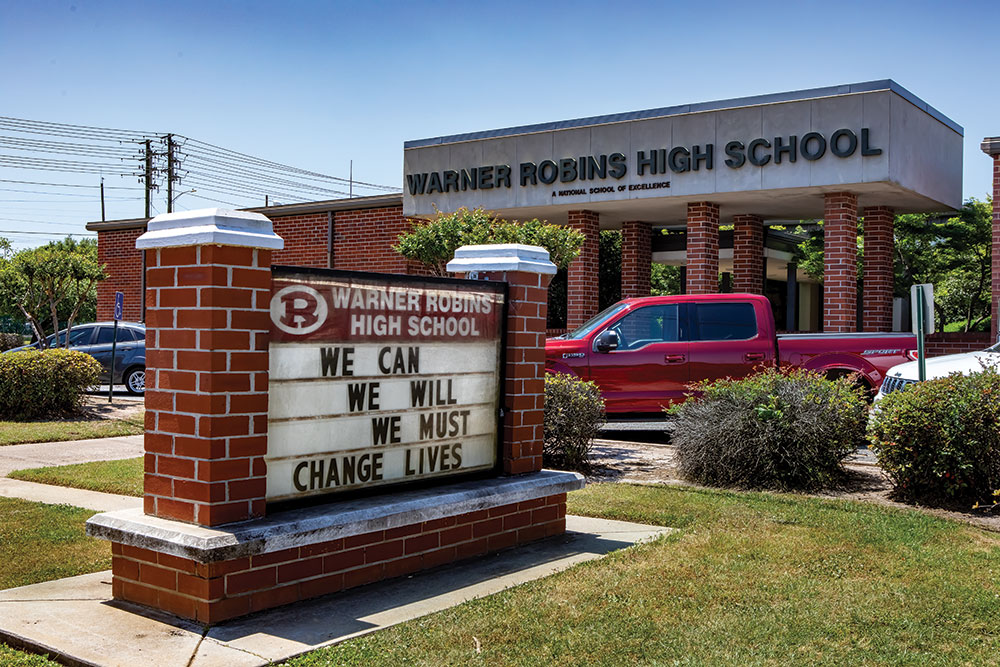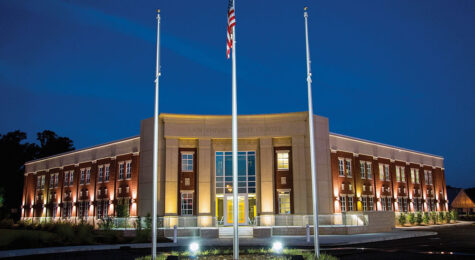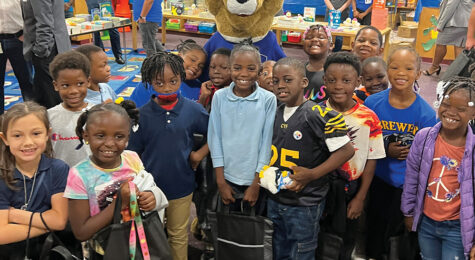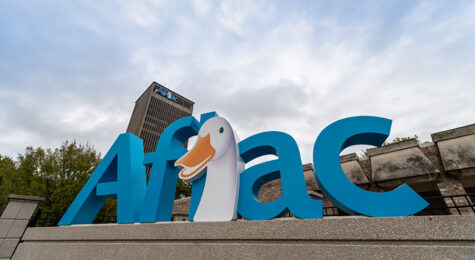For Robins Region Students, the Future is Now
Middle Georgia schools partner with industry leaders to make sure new generation has the skills to succeed in tomorrow's marketplace.

A wealth of high-quality education options, both public and private, is a cornerstone of the Robins Region’s enviable quality of life and economic success.
A roster of private and parochial schools, such as Westfield School, Christ School, Christian Fellowship Academy and Sacred Heart Catholic School, augments the top-rated Houston County public school system, which serves more than 30,000 students and their families.
In This Article
Powerful Partnerships Thrive in the Robins Region
The public school system plays a major role in the region’s workforce development efforts, with academic pathways designed to prepare students for in-demand careers. The Houston County Board of Education also partners with industry leaders and economic development organizations to tailor curriculum that will give students the skills local employers need.
“A great example of how our district meets the needs of our region’s workforce shortfall is our partnership with Frito-Lay,” says Dr. Mark Scott, superintendent of schools for the Houston County Board of Education. “Some years ago, we were approached by Frito-Lay looking to see what we offer that would assist them in meeting the shortage of industrial maintenance mechanics.
“Since there was not a pathway specific to the skills needed to meet this shortfall, we created a pathway for it. We worked very closely with Frito-Lay’s lead industrial systems engineer as well as Central Georgia Technical College to develop a curriculum and the first industrial maintenance pathway lab in Georgia.”
Scott says the graduates of the program are being hired at Frito-Lay and other manufacturing companies right out of high school.
He points to a new partnership with Robins Air Force Base as another example of how the school system quickly adapts to meet the needs of local employers.
The base needs more software engineers, so a collaboration between the base, the school system and Middle Georgia State University will allow students to work alongside software engineers while earning dual credit for high school and college.

Finding Pathways to Success in Houston County, GA
The district’s high schools offer over 50 pathways to ensure that they can meet the needs of local businesses and industries.
Additionally, the district uses an assessment called YouScience that matches students’ interests with their aptitude. Schools use the results of the assessment to help students choose pathways while in high school.
Yet another example of partnership is the Houston County Career Academy, an initiative of the Houston County Board of Education, industry leaders, economic development organizations and Central Georgia Technical College.
The charter school gives 10th-, 11th-, and 12th-grade students a head start to careers with hands-on experience in high-demand areas, such as audio visual and film, culinary arts, health care science technology, engineering and aircraft structural technology. In fact, most of the school’s instructors are professionally qualified with at least three years of industry-related work experience.
“One of our initiatives to demonstrate employability skills required by business and industry is requiring all students to create a career portfolio,” says Sabrina Phelps, principal and CEO of the Houston County Career Academy.
“As part of our sharpening-the-saw plan, we annually review and post lessons learned on our school’s shared website. Our graduates often return to express gratitude for their portfolio. Many have used their portfolio at job interviews and Career Student Technical Organization competitive events.”

Innovative Learning Creates Opportunities for All
The Career Academy is head of its class in terms of innovative learning structures. Examples include a summer STEM camp for eighth- and ninth-graders focused on nontraditional gender pathways, such as Girls in Automotive, Girls in Engineering and Males in Nursing.
“Career Technical Education has always been fertile ground for innovation. We attest to this as we have watched vocational training evolve to career preparation, which requires us to continuously refine our pathways by listening to the demands of business and industry,” Phelps says. “We’re planting seeds to grow the future workforce by exposing our students to many opportunities that await them if they apply themselves.”
Livability Robins Region
This digital edition of the Livability Robins Region is sponsored by Robins Regional Chamber.




